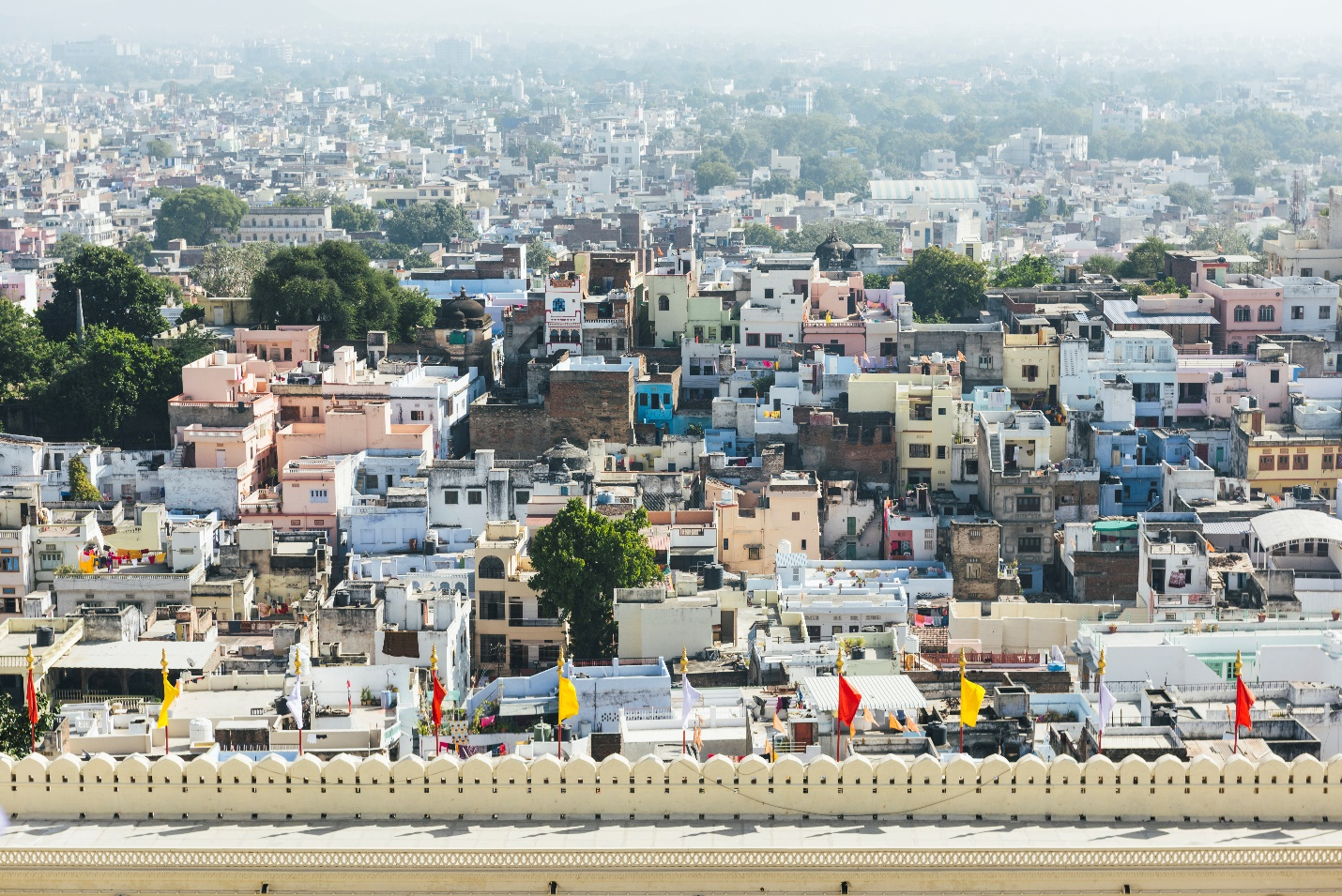India's pharmaceutical sector is a global leader in the production of generic drugs and vaccines. According to Bain & Co, the Indian pharmaceutical market stood at Rs. 4,71,295 crore (US$ 55 billion) in 2025 and is expected to grow to Rs. 10,28,280-11,13,970 crore (US$ 120-130 billion) by 2030. Recognised as the ‘pharmacy of the world’, India supplies one in five generic medicines globally and has risen from seventh place in 2019 to third in global export volume.
As of May 2025, India remains the largest supplier of generic medicines, providing 20% of the world’s supply. It also plays a key role in affordable vaccines, supplying 55-60% of UNICEF’s vaccines, 99% of WHO’s DPT vaccine demand, 52% of BCG vaccines, and 45% of measles vaccines. This growth has created significant employment opportunities across manufacturing and research.
The pharmaceutical industry’s total turnover stood at Rs. 2,25,000 crore (US$ 26.26 billion) in FY25, led by cardiac, gastrointestinal, and anti-diabetic segments. India ranks among the top 12 destinations for biotechnology worldwide and is the third largest in Asia Pacific. The country’s Bioeconomy has expanded from Rs. 85,690 crore (US$ 10 billion) in 2014 to Rs. 11,99,660 crore (US$ 140 billion) in February 2025 and is expected to reach Rs. 21,42,250 crore (US$ 250 billion) in the coming years, driven by thriving biotech startups.
In August 2025, the Indian pharmaceutical industry recorded a growth rate of 8.7%, with volumes increasing by 1.2%. Affordable HIV treatments and low-cost vaccines from India are highly sought after globally due to their quality and pricing. The presence of a skilled workforce and strong managerial and technical competence attracts private investments, with companies expanding into rural markets and infrastructure development.
India’s drugs and pharmaceuticals exports reached Rs. 2,59,658 crore (US$ 30.38 billion) in FY25, up from Rs. 2,43,119 crore (US$ 27.82 billion) in FY24. Drug formulations and biologicals dominated with Rs. 1,96,401 crore (US$ 22.92 billion), accounting for 75% of total exports. The hospital market was valued at US$ 98.98 billion in FY23 and is projected to grow to US$ 193.59 billion by FY32. In FY26, private hospitals are expected to add over 4,000 beds with Rs. 11,500 crore (US$ 1.34 billion) investment.
FDI inflows into the Drugs & Pharmaceuticals sector from April 2000-June 2025 totalled Rs. 2,10,940 crore (US$ 24.62 billion). India’s CRDMO industry is set to double to Rs. 1,21,282 crore (US$ 14 billion) by 2028, while the medical devices industry aims to grow from Rs. 1,02,564 crore (US$ 12 billion) in 2023-24 to Rs. 4,27,350 crore (US$ 50 billion) by 2030. In September 2025, India plans to boost exports to Russia, the Netherlands, and Brazil by 20%, while already serving markets like the US, UK, Brazil, Netherlands, and Russia.
In July 2025, Cipla acquired a 20% stake in Bengaluru-based iCaltech Innovation to strengthen its respiratory devices and diagnostic portfolio. As of June 30, 2025, 16,912 Jan Aushadhi Kendras operate under the Pradhan Mantri Bhartiya Janaushadhi Pariyojana, offering 2,110 medicines and 315 surgical items, with a target of 25,000 by March 2027. Q1 2025 saw 71 pharma and healthcare sector deals worth Rs. 22,279 crore (US$ 2.6 billion).
The National Biopharma Mission, with a Rs. 2,142 crore (US$ 250 million) budget co-funded by the World Bank, supports over 101 projects involving 150 organisations and 30 MSMEs, creating 11 shared facilities and over 1,000 jobs, including 304 scientists and researchers. Parexel plans to add 2,000 employees in India over the next five years. India’s pharmaceutical industry has maintained a robust annual growth rate of over 10% from 2020-25, driven by rising healthcare needs and export demand.
Indian pharmaceutical firms have a Rs. 85,690 crore (US$ 10 billion) opportunity by 2029 as 15 blockbuster drugs with combined revenue of Rs. 9,59,728 crore (US$ 112 billion) go off-patent. Non-prescription OTC drugs may soon be sold at general stores, pending licensing.
Union Budget 2025-26 allocated Rs. 1,400 crore (US$ 163 million) for three mega bulk drug parks, Rs. 5,268 crore (US$ 614 million) for the pharma industry, and Rs. 1,460 crore (US$ 170 million) for medical device parks. India is the third-largest producer of APIs, manufacturing over 500 types and supplying 57% to WHO’s prequalified list.
In March 2024, 27 greenfield bulk drug parks and 13 greenfield medical device plants were inaugurated. The PMBJP reached Rs. 1,000 crore (US$ 119 million) in sales by October 2024. Government initiatives like Production-Linked Incentive (PLI) and Bulk Drug Parks aim to reduce costs and attract investment, with US$ 353.4 million allocated for bulk drug production.
India’s pharmaceutical R&D is projected to receive Rs. 17,000 crore (US$ 2 billion) by FY28. PRIP funding of Rs. 720.97 crore (US$ 82.5 million) supports Centres of Excellence at NIPER and private-sector milestone-based research. Emcure Pharmaceuticals launched Orofer FCM 750, a new parenteral iron brand for Indian patients. Japanese companies have been invited to invest, stabilising global API and medical device supply chains.
The domestic pharmaceutical market is expected to reach US$ 130 billion by 2030. Initiatives like Ayushman Bharat Digital Mission aim to strengthen India’s integrated digital health infrastructure. BIRAC provides funding through BIG, SEED, and LEAP schemes, ranging from Rs. 30 lakh to Rs. 100 lakh per startup.
To reduce import dependency, the Department of Pharmaceuticals initiated the PLI scheme for greenfield plants with a cumulative outlay of Rs. 6,940 crore (US$ 951.27 million) for FY21-30. The government disbursed Rs. 604 crore (US$ 69.76 million) under PLI in H1 FY25. India, the 3rd largest pharmaceutical industry by volume, is set on a positive growth trajectory. Over the next five years, medical spending is projected to rise 9-12%, with a focus on chronic therapies and speedy introduction of generics.
India’s pharmaceutical sector continues to solidify its position as a global healthcare leader, driven by strong domestic manufacturing, export excellence, and continuous innovation. With expanding R&D capabilities, supportive government policies, and growing global partnerships, the industry is poised to advance further in biotechnology, active pharmaceutical ingredients (APIs), and medical devices. Looking ahead, India is set to play an even greater role in ensuring global health security, delivering affordable and high-quality medicines, and leading the next phase of growth in life sciences and digital healthcare.














